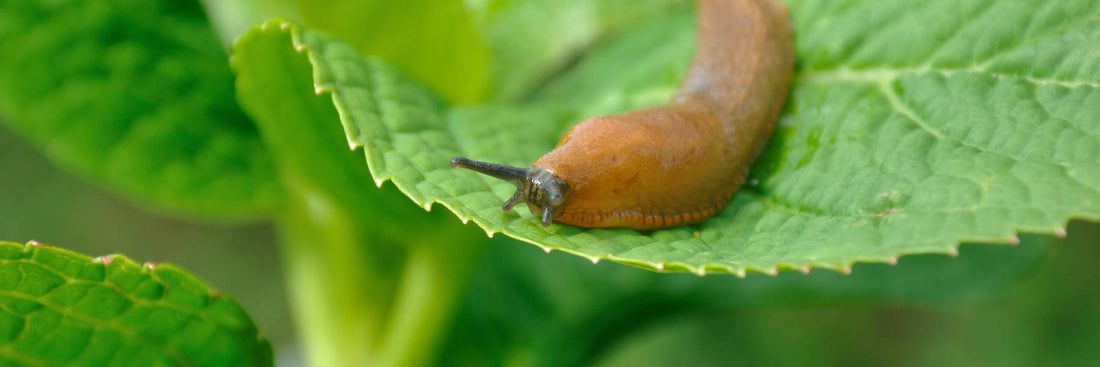Slugs can be very damaging pests in moist, shady gardens. They feed on the leaves of many plants, especially seedlings. Later in the season they can feed on ripening fruits and vegetables. Slugs are especially numerous during rainy seasons and in well-irrigated gardens. If slugs are abundant one year, it does not mean they will be as common the following season; the relative number of slugs in a given season depends on how moist the growing conditions are.
Identification
Slugs are best described as snails without shells. They are a type of mollusk, related to clams and oysters. Slugs are soft bodied, generally brownish or grayish, with eye stalks. They vary in size from 1/4 inch to two inches or longer. Slugs leave a silvery slime trail that they secrete as they move. Slugs use file-like mouthparts to rasp and chew plant tissue. Because of their mouthparts, they create irregularly shaped holes. Feeding damage can be cosmetic; however extensive feeding can result in plant stress or even death.
Biology
In Michigan, slugs usually overwinter as eggs in protected sites on the ground, such as under plant debris, mulch, or boards. Eggs hatch during spring or early
summer. Depending on conditions, slugs may lay eggs throughout the summer. Slugs are more active at night and when it is cool and damp, although they may be seen during the day in cool, shaded sites. Warm, dry conditions are less favorable to them.
Cultural
Rake your garden in early spring to remove leaves, plant debris and slug eggs. Also remove boards and other material to reduce favorable areas for slugs. Avoid using large wood chips as they provide hiding places for slugs. Do not place mulch any thicker than three inches. This helps protect plants from weeds and helps maintain plant moisture while minimizing a favorable environment for slugs. Water your garden only when necessary. Irrigate in the morning so plants are dry by evening. Prune lower leaves or stake large plants to reduce potential hiding places for slugs and to allow better air circulation that helps keep the soil surface drier.
Control
Use #1 Sluggo when damage is observed on desirable landscape and garden plants. The use of #2 Mulch can help protect plants from weeds and helps maintain plant moisture while minimizing a favorable environment for slugs. Please read all labels before applying products.

